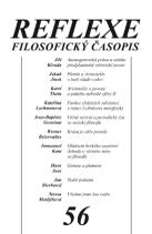Zur Geschichten der Interpretation von Augustins Auffassung der Zeit
Whereas Aristotle’s theory of time played a crucial role for the entire period from the Antiquity to the modern era, Augustine’s treatment in Book XI of the Confessions received a more sustained treatment only with the rise of psychologism in the latter half of the 19th century (Brentano, Dilthey) and then in phenomenology: for Husserl, the analysis is a precursor of the phenomenology of the inner consciousness of time, Heidegger sees distentio animi as a key feature of the vita actionis. While opening Augustine’s text to new perspectives does not necessarily mean distorting it, many „modernizing“ interpretations – especially those based on the notion of „subject“ – impoverish the depth of the original meditation.
Backlinks: Reflexe 28
